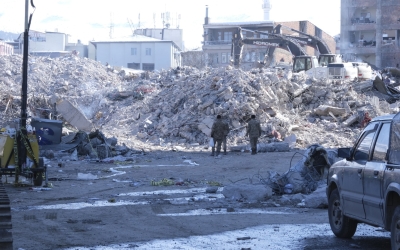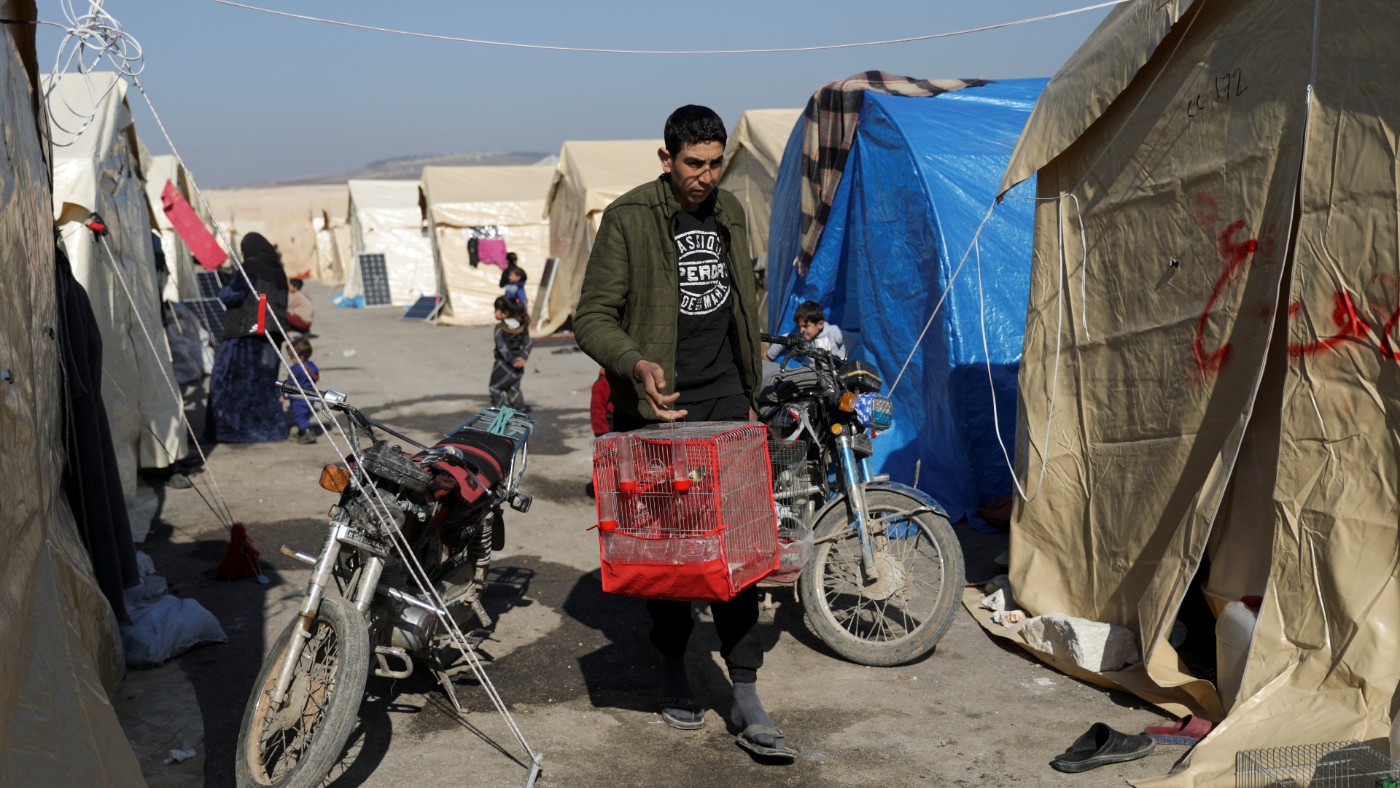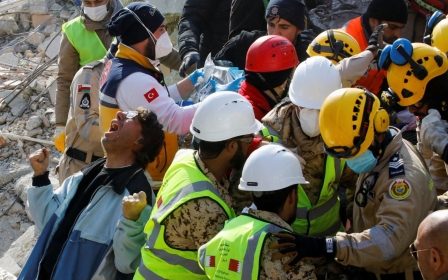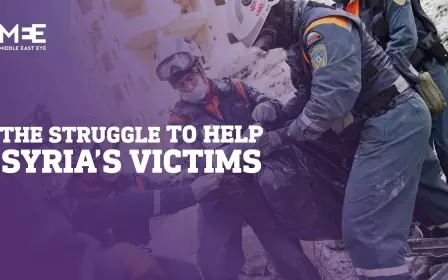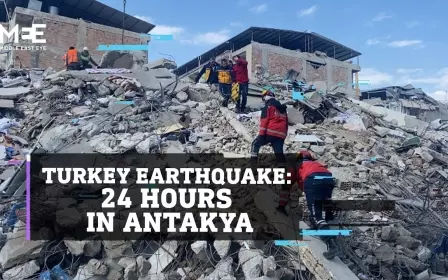Turkey earthquake: Teenage boy and girl saved after 10 days under rubble
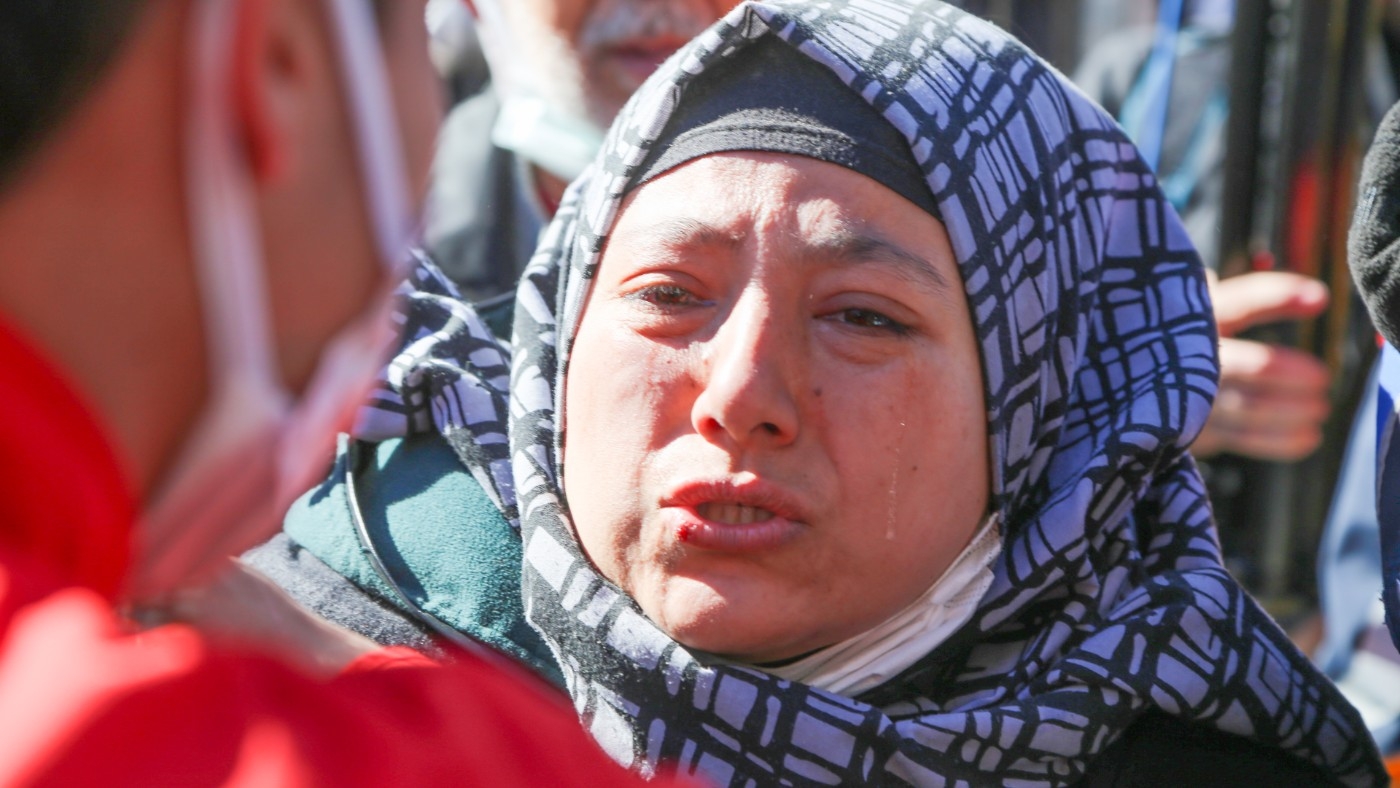
Rescue workers from the Istanbul Fire Department have pulled a 13-year-old boy out from under the rubble after he spent 228 hours there following the deadly earthquakes that have hit Turkey and Syria.
Mustafa's life was saved on Wednesday in the southern Turkish city of Antakya, which has been particularly badly impacted.
Video footage released by the Istanbul municipality showed the moment the young teenager was rescued and carried away by emergency teams.
Rescue scenes like this have provided rare moments of hope amidst a sea of devastation, with the death toll following the two earthquakes currently standing at over 41,000 and expected to rise far higher.
In Turkey's Kahramanmaras province, a 17-year-old girl was rescued from the rubble 248 hours after the first earthquake hit, according to state broadcaster TRT Haber.
New MEE newsletter: Jerusalem Dispatch
Sign up to get the latest insights and analysis on Israel-Palestine, alongside Turkey Unpacked and other MEE newsletters
Aleyna Olmez was saved from the debris of the collapsed Atabey apartment building in the Kayabasi neighbourhood of Kahramanmaras.
In the same province, on the 10th day following the powerful earthquakes, a 74-year-old woman was pulled alive from the debris of a collapsed building. Cemile Kekec had remained trapped for 227 hours, according to Reuters.
Also in Kahramanmaras, a cat was rescued from a building 248 hours after the disaster struck.
The two earthquakes hit on 6 February. In Turkey, they were centred in Kahramanmaras and shook nine other provinces: Hatay, Gaziantep, Adiyaman, Malatya, Adana, Diyarbakir, Kilis, Osmaniye, and Sanliurfa.
Experts say 90 percent of survivors under the rubble are found in the first 72 hours, a window that closed last Thursday morning.
But news of people being rescued has continued to emerge in the days following, with miraculous examples of survival including that of a 10-day-old baby, who had spent half his life under the rubble, being saved along with his mother after 90 hours.
As rescue efforts continue, foreign emergency workers and the families of loved ones still lost have warned against using heavy machinery to clear away all the rubble because it could kill people who are still alive but trapped.
On social media, people are using the hashtag #EnkazKaldirmaDurmali, which translates as “debris removal must stop”.
Cyrille Chauveau, deputy leader of a French rescue team deployed in Antakya, told Anadolu that organising relief efforts after such disasters is very difficult.
“It is hard to know where to send the rescue teams,” Chauveau said. “We must organise fast and focus on the rescue operations. We must race against time during such vast disasters.”
In a profound show of international solidarity, rescue workers have come from across the globe to help with relief efforts.
Bird man
In Syria, which is suffering from the twin earthquakes on the back of a decade of civil war, there was some better news to be found at a camp on the outskirts of rebel-held Jandaris.
Omar Hussein al-Ahmad, who survived the earthquakes, told Reuters how he had managed to rescue a number of birds from the disaster.
The 27-year-old father of two said that he had first fled his house with his wife and children. He then came back to save the birds and bring them back to his family's tent at a camp for displaced people.
Carrying a cage full of some of the birds he had saved, Ahmad said that his house had been completely destroyed. "If we set these birds free, they wouldn't survive, they need care and a special type of food," he told Reuters.
After the earthquake hit, Ahmad stayed in an olive grove for a couple of days before coming to the camp in Jindayris. "The next day, we returned home to get our stuff and found some of the birds alive in the cages, others in some five to six cages had died," Ahmad said.
Raising birds has been a longstanding hobby for Ahmad and he has passed his passion on to his children.
"Now, my youngest son loves birds as well and he told me to go back and get them so they don't die," Ahmad said.
Middle East Eye delivers independent and unrivalled coverage and analysis of the Middle East, North Africa and beyond. To learn more about republishing this content and the associated fees, please fill out this form. More about MEE can be found here.


